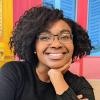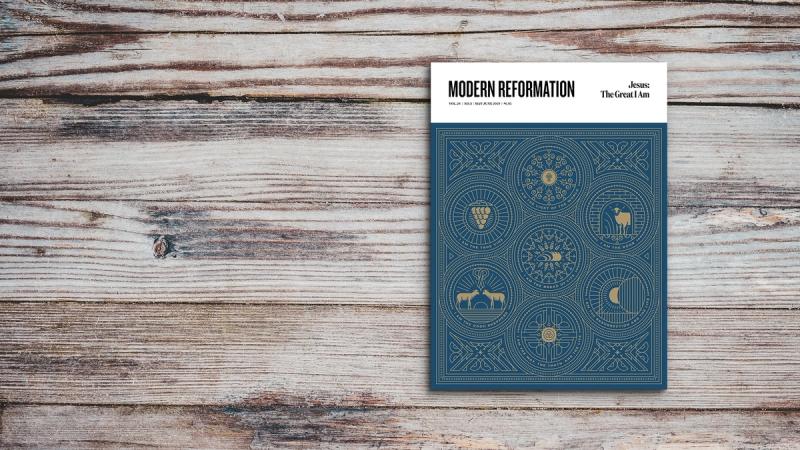Pray for Salam’s safety in Tunisia. Her family will try to kill her if she converts. These words are printed on a prayer calendar that hangs in my home. Christians are not strangers to stories of family persecution and estrangement. In general, the accounts we hear tend to sound like Salam’s—they are life-threatening situations where Christians risk their lives to follow Jesus. But we also know of more subtle cases of family opposition. Family members in Western cultures are not known to threaten death after a loved one’s conversion, but they may object to or even punish changes they see in that person. A sudden biblical worldview or decision considered “radical” might be met with resistance and anger. Some loved ones may even distance themselves emotionally or physically. Tara Westover’s Educated is not a tale of Christian conversion; her coming-of-age memoir tells a story most of us are not likely to hear in our churches. Westover’s upbringing stands distinctively on its own, and yet her chronicle of family separation sounds like a familiar tale. In the end, the book emerges as a surprising example of how to tell with both grace and truth the often complicated and always ugly story of family estrangement.
Westover’s memoir begins in the mountains of southeast Idaho. The youngest of seven children, she spent her days roaming the heights of Buck’s Peak, a summit that rises and curves in the form of a woman. Westover calls the mountain “the Indian Princess.” In many ways, this “Princess” stands as a silent character in her story, an ever-present observer of her family’s strange happenings—a family ruled by Westover’s father, Gene (a pseudonym), a figure as looming as the Princess herself.
Westover was born sometime in the fall of 1986—no one, including her mother, is sure of her exact birth date. The delivery took place at home, and no birth certificate was issued. This uncommon beginning marks the rest of her childhood. Gene, a self-proclaimed Mormon prophet with survivalist tendencies (well outside the mandates of his faith), saw the government and its associated institutions as evil, and he worked hard to shield his family from their impact. In this memoir, every decision Gene makes seems to be driven by an impulse to live apart from mainstream systems. He earns a living building barns and scrapping metal from a junkyard, his children serve as his crew, and money from the work is used to stockpile necessities that will allow for their complete independence.
Westover’s mother, Faye (another pseudonym), is an unlicensed midwife and herbalist. She also plays the family doctor. With a large mountain and a scrap heap for a backyard, Faye is constantly called to treat various accidents, many of which are beyond gruesome in description. Skulls are cracked, legs and faces are set on fire, and limbs are severed. In each case, Faye works quickly to treat the injury with herbs and oils. Westover never sees a doctor in her childhood.
Faye is also a homeschool teacher. She instructs her children in reading and basic mathematics and then releases them to explore other subjects on their own in a “free range” form of homeschooling. Westover enters a classroom for the first time as a college freshman at Brigham Young University (she teaches herself enough algebra to pass the ACT). She proves to be a remarkable student, goes on to complete a fellowship at Harvard, and earns a PhD from Cambridge University.
Her academic journey, however, is not without its frustrations. Her memoir describes an intense scene in college when she raises her hand to ask the meaning of a word she has never heard before: Holocaust. The professor misconstrues the question as an anti-Semitic denial of the event and rebukes her, while her classmates stare at her disapprovingly. This moment, and others like it, reveals to Westover the depth of her ignorance of the larger world and stirs up bitter questions about and reflections on her childhood.
Educated begins with a carefree child standing at the base of the Princess and ends with a highly educated young woman far removed from her mountain home and family circle. In between those scenes are many meditations on religious fundamentalism, mental health, abuse, feminism, and self-driven education. All these are there, and yet for Westover, her story is mostly about change and the loss of family. She says the following in an interview with the Mormon Stories Podcast: “The questions the book asks . . . are about change . . . whether you are allowed to change and what happens when the people close to you can’t allow you to change or just can’t accept any other version of you” (https://www.mormonstories.org/podcast/tara-westover).
As already mentioned, Westover tells her story of estrangement with a mixture of grace and truth. She describes a paranoid father who would rather trust his children to the hazards of a scrapyard than to a classroom. Her picture of Gene is clearly disturbing but still painted with some strokes of affection. She writes this in the notes section of her book: “We are all more complicated than the roles we are assigned in stories. Nothing has revealed that truth to me more than writing this memoir—trying to pin down the people I love on paper” (334). The memoir reads like the tale of a woman who is estranged from a family she still loves, but it is also a story of conversion—not from one religious identification to another, but transformation through the power of education. Christians will find her account, and perhaps even her questions, familiar: “What happens when the people close to you can’t allow you to change or just can’t accept any other version of you?” In Educated, Westover addresses these questions with a poise that can serve as an example to those who may need to tell a painful story with both grace and truth.
Nana Dolce has a Master of Arts in Theological Studies, teaches the Bible to women and children at her local church, and writes for Modern Reformation, Christianity Today, Christ and Pop Culture, and Risen Motherhood. Find her at www.motherhoodandsanctity.com. She lives in Washington, DC, with her family.








